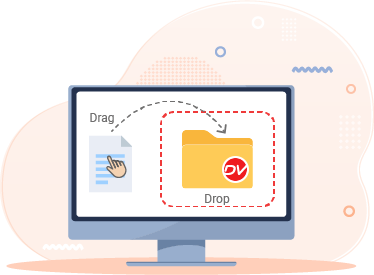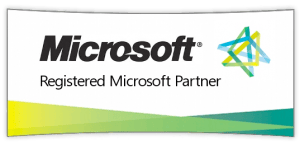Top 10 Benefits of Records Management
What is Records Management System?
A Records Management System (RMS), also known as electronic records management, is a vital part of an organization’s document policy. It helps manage both digital and physical records across their entire lifecycle—from creation and use to storage and disposal. While many organizations still depend on physical records for legal or operational needs, managing them manually often leads to disorganization, lack of visibility, and compliance risks. A well-implemented RMS streamlines this process, ensuring better control, compliance, and efficiency.
What are the benefits of a Records Management System?
A Records Management System (RMS) plays a vital role in helping organizations manage both physical and digital records efficiently, securely, and in compliance with regulatory standards. Here are the key benefits:
1. Control Record Growth
Despite increasing digitalization, paper usage persists in many organizations. A Record Management System helps control record creation and duplication by retaining only essential documents, reducing storage requirements and maintaining order across departments.
2. Quick Retrieval & Timely Disposal
A Record Management System enables fast, indexed retrieval and automates record disposal based on retention policies—reducing errors, saving billable time, and ensuring timely clean-up of inactive data.
Also Check: Record Retention
3. Streamline Archiving and Deletion
Time lost searching for misplaced files or sorting through outdated documents can be costly. An effective Records Management System ensures that inactive files are handled efficiently through secure archiving and compliant deletion, guided by clear Document Archive and Delete Policies—helping organizations manage sensitive data and large volumes of contracts with ease.
4. Integrate with Modern Technologies
Modern Records Management Systems easily integrate with existing physical and digital infrastructures. Features like document scanning, digital signatures, and workflow automation streamline tasks such as approvals, reviews, and routing—especially useful for contract and compliance-heavy operations.
Also Check: Document Scanning and Digitization
5. Ensure Regulatory Compliance
Regulatory compliance require organizations to maintain accurate records with traceable histories. A Records Management System ensures secure access, audit trails, and retention schedules to meet legal obligations and respond confidently during audits or litigation.
6. Reduce Legal Risks
Proper record retention and defensible disposal policies reduce the likelihood of legal penalties or data breaches. This is especially crucial when dealing with contracts, regulatory documents, or sensitive business records.
7. Protect Critical Information
A Records Management System ensures that sensitive data—such as HR files, contracts, or client records—is stored securely, accessed only by authorized personnel, and protected from accidental loss or tampering.
8. Save Time, Space & Costs
By automating document routing, approvals, and notifications, a Records Management System reduces manual tasks and streamlines workflows. This cuts down on storage costs, eliminates paper-heavy processes, and enhances staff productivity.
9. Preserve Organizational Knowledge
Each document contributes to a company’s long-term knowledge base. A Records Management System helps preserve this information—be it historical contracts, project files, or reports—for future planning and strategic use.
10. Improve Workplace Morale
Disorganized filing systems frustrate employees and slow down work. A well-structured Records Management System supports smooth operations, reduces stress, and fosters a more focused, productive workplace.
Practical Use Cases of a Records Management System
A Records Management System, often integrated as part of a broader Document Management System, helps various departments manage critical documents more efficiently and securely.
Legal Professionals
Use a Records Management System to automate contract approvals, maintain a secure contract repository, and ensure compliance—freeing time for high-value legal tasks.
HR Professionals
Use a Records Management System to automate employee record retention, streamline onboarding and exit documentation, and ensure compliance while reducing legal and audit risks.
Finance & Accounting Professionals
Use Records Management System to organize financial records, documents like invoices and audit trails with access controls and automated retention to meet regulatory compliance and reduce data risks.
Manufacturing Professionals
Use Records Management System to store manage product specifications, SOPs, and compliance reports with version control to ensure consistency and meet industry standards.
Conclusion
A well-implemented Records Management System is more than just a tool—it’s a strategic asset for forward-thinking organizations. By managing both digital and physical records across their entire lifecycle, it enables businesses to stay compliant, minimize risk, and streamline operations. As companies increasingly look to go paperless, such systems play a vital role in reducing physical storage, lowering costs, and supporting sustainability goals. Advanced features like document archiving and automated deletion policies help eliminate clutter and reduce legal exposure. Meanwhile, quick access to accurate information empowers teams to make faster, more confident decisions, while ensuring data security and boosting overall productivity. In today’s fast-paced, information-driven world, a structured and secure Records Management System isn’t just a benefit—it’s a necessity.
Records Management FAQs
Records management is important because it ensures that important records are preserved and controlled throughout their lifecycle including compliance with set retention procedures. Using a document management system is the best way to guarantee records with historical, fiscal, risk management, and legal impact are accurately identified and preserved, and non-essential records are discarded as required by set rules.
Records lifecycle in records management refer to the journey of documents and information from its creation to its disposal.
Records lifecycle is flexible and varies from organization to organization. In Docsvault, the phases of records lifecycle are:
Create Records: Easily create different retention schedules for your electronic or physical records as per regulations.
Retrieve Records: This can include processes such as filing and retrieval of information. You can instantly search for records by name, record series, disposition date, metadata, hold types, and many other criteria
Circulate Records: Manage and monitor the circulation of physical and electronic documents distributed internally and externally for business decisions.
Dispose Records: Disposition involves destroying records or transferring them to another entity. Docsvault allows creating batches of records for disposition on a regular basis so you can establish proof of having consistent and properly disposed records during the normal course of business.
The two major types of records are physical records and electronic records. Docsvault helps you manage the entire lifecycle of physical records including the circulation of records. You simply need to apply the retention policy for your digital and physical records and Docsvault will protect them from accidental and deliberate deletions.
The best document management software is Docsvault, a robust all-in-one document management solution to manage your physical and digital documents. Its document management and records management tools help to ensure accountability for managing records and processes of document creation that are required to conduct the business of the organization.
Docsvault’s Records Management is built-in feature available in Docsvault Enterprise & Ultimate editions. The Auto Retention function in Docsvault’s ‘Records Retention’ section entirely restructures the manual records retention schedule. Setting a retention strategy based on document metadata can assist companies to maintain and access records over lengthy periods of time.
This article covers:
- What is Records Management System?
- What are the benefits of a Records Management System?
- 1. Control Record Growth
- 2. Quick Retrieval & Timely Disposal
- 3. Streamline Archiving and Deletion
- 4. Integrate with Modern Technologies
- 5. Ensure Regulatory Compliance
- 6. Reduce Legal Risks
- 7. Protect Critical Information
- 8. Save Time, Space & Costs
- 9. Preserve Organizational Knowledge
- 10. Improve Workplace Morale
- Practical Use Cases of a Records Management System
- Conclusion





